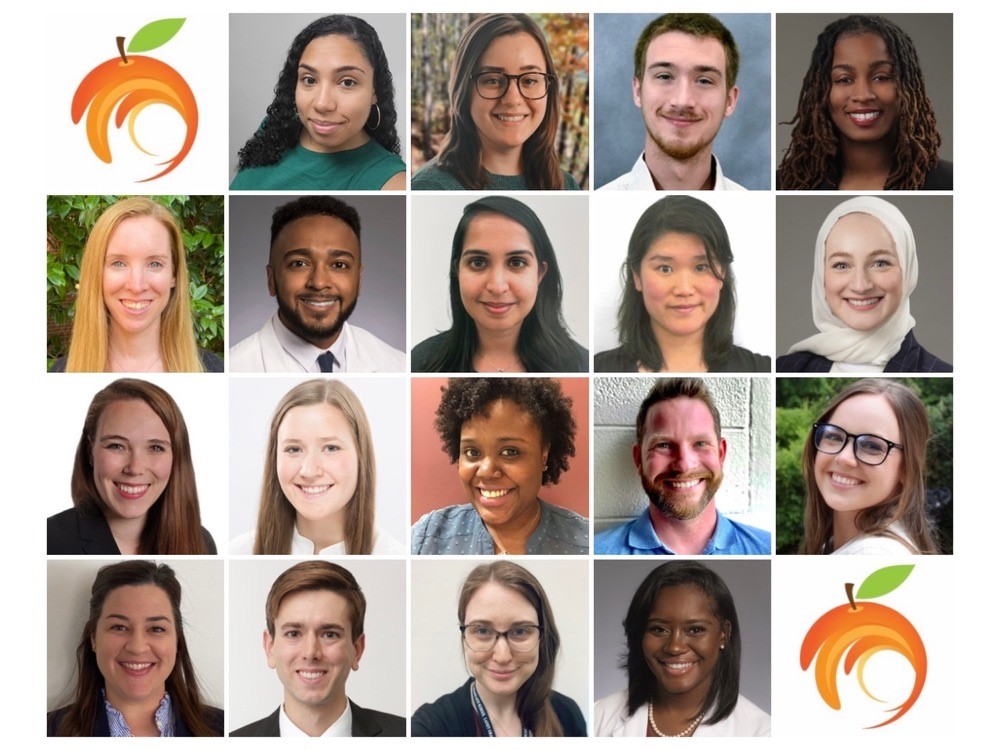Georgia CTSA Welcomes 2023-2024 TL1 Trainees

Congratulations to the new trainees in the Georgia CTSA TL1 Program. The program provides outstanding opportunities for clinical and translational science training for predoctoral and postdoctoral trainees at Georgia CTSA partner institutions. In addition to didactic training, all TL1 trainees will have mentored research training and carry out a hypothesis driven research proposal relevant to human health under the guidance of their lead mentor and mentoring team. Their research project includes a well-articulated human component and an explanation of how the research translates to improving human health.
Through the TL1 Program, the Georgia CTSA will increase the translational research workforce and enhance career development of future leaders of the biomedical research workforce, a major mission of NIH.
Postdoctoral Trainees
- Hannah Cebull, PhD, Emory University/Georgia Tech, Dual-Modality Assessment of Residual Type A Aortic Dissections Using CT and 4D Flow MRI
- Zahra Jiwani, DO, Emory University, Impact of Structural Racism and Psychosocial Services Utilization on Pediatric Cancer Survivor Care
- Elizabeth Kim, MD, MPH, Emory University, Risk factors associated with increased mortality in patients with Pseudomanas aeruginosa resistant to carbapenems but susceptible to other traditional antipseudomonal-lactams
- Sadie Mason, MD, Emory University, Investigating the access to, and impact of, hematopoietic cell transplant on morbidity of children with sickle cell disease
- Hazel Ozuna, PhD, Emory University, Immunohormonal signaling in the control of infection and inflammation in Cystic Fibrosis
- David Parker, PhD, Emory University, Identifying Genetic and Phenotypic Subgroups in Individuals at High Risk of Developing Psychosis
- Sarah Scott, MD, Emory University, Investigating Disparities and Trends in Invasive Pneumococcal Disease and Invasive Group A Streptococcus Infection by Race/Ethnicity and Housing Status in Metro Atlanta 2010-2011
Predoctoral Trainees
- Alaijah Bashi, Morehouse School of Medicine, Role of miR-451a and let-7i-5p-loaded extracellular vesicles in inflammation related to hemolytic diseases in disadvantaged populations
- Aaron Chase, PharmD, University of Georgia, Matrix-metalloproteinase 3 (MMP3)-derived phenotypes for prediction of acute respiratory distress syndrome (ARDS) development and response to pharmacotherapy
- Kamaria Dansby, Emory University, Investigation of the epidemiological differences associated with Post-Acute Sequelae of SARSCoV-2 (PASC) pathogenesis
- Denise Fahey, University of Georgia, Plac8-mediated regulation of intestinal inflammation
- Omar Jean-Baptiste, Emory University, Clinical, Socioeconomic, and Facility Factors Influencing Receipt of Oncoplastic Breast Conserving Surgery: Analysis of the National Cancer Database
- Reema Martini, Emory University, The Effect of Regional Anesthesia on Breast Cancer Recurrence
- Catherine McGeoch, Emory University, Obesity and Impact of Cardiovascular Risk Factor Education Intervention in African American Women
- Ava Reck, MS, University of Georgia, Food Insecurity, Neural Vulnerabilities, and Internalizing Symptoms Among Adolescents
- Nicholas Thomas, MPH, Emory University, Investigating the Impact of Inflammation on White Matter Tracts using Diffusion Tensor Imaging that may Contribute to Motivational Deficits and Negative Symptoms in Patient with Schizophrenia
- Tara Urner, Emory University/Georgia Tech, Noninvasive optical assessment of microvascular blood flow waveforms a novel biomarker of cerebrovascular health
- Sydni Williams, Emory University, The effect of race-related stress on risk for low birth weight deliveries in black pregnant persons